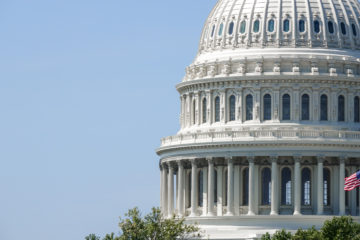The Market Institute President Charles Sauer has submitted the following statement to Senate Committee on the Judiciary, Subcommittee on Intellectual Property for the Hearing on The Patent Trial and Appeal Board: Examining Proposals to Address Predictability, Certainty, and Fairness.
June 22, 2022
The Market Institute advocates on behalf of small businesses and limited government. We appreciate this opportunity to submit written testimony, and our comments will focus on how patents and inventors are at the core of a healthy American economy.
Patents give inventors the incentive to invest their hard-earned money into an idea. Patents are what give inventors the assurance that if they invent the next big thing—then that thig is theirs to profit from. But when someone owns a patent for the next big thing, others can become jealous. That is why it is vital to have a legal system that protects patent rights and the power of inventors to protect their ideas.
Patent rights are the only rights explicitly laid out in the Constitution. Admittedly, Thomas Jefferson had some reservations about patents because they gave the inventor a limited monopoly. But he eventually supported the idea, a patent bill was passed in the first Congress, and Jefferson went on to say that “an act of Congress authorising the issuing patents for new discoveries has given a spring to invention beyond my conception.”
Recently, however, groups from activists to large technology companies have attacked patents. These companies see intellectual property as a cost of business that they do not want to pay. So they have lobbied to ways to make patents less valuable and to make it more difficult for patent holders to defend their inventions. During this effort, in 2011, Congress passed the America Invents Act, which established the Patent Trial and Appeal Board (PTAB). The legislation’s intent was to provide another way to ensure the validity of patents. It did this partially through a process called inter partes review to determine whether a patent should have been initially granted at all. Trying to streamline the patent adjudication process was a laudable goal, but that is not what has happened with the PTAB.
The PTAB invalidates practically all the patents that come before it. More specifically, it invalidates approximately 60% of all patent claims after trial and approximately 87% of all patents have at least one claim invalidated post-trial. Former Chief Judge of the Federal Circuit, Paul Michel, observed that large technology companies use their “influence to chip away at patent rights” and “have long relied on a strategy of deliberate infringement because enforcement litigation is too expensive for younger smaller competitors.” The current state of litigation in the PTAB is part and parcel of this strategy.
Aside from its bias against patent rights, large technology companies also force smaller inventors to litigate in both federal court and the PTAB because PTAB trial are costly—averaging around $450,000. To bully smaller inventors, what these larger companies typically do is drag them to the PTAB after federal cases have already been brought. Right now, PTAB judges can stay their proceedings under a legal rule known as the Fintiv Doctrine. Without that doctrine, which these companies are trying to legislate out of existence, larger technology companies can still litigate in federal court if they lost against smaller inventors at the PTAB. That sort of prolonged multi-venue litigation is simply too much for inventors who have already invested their personal time and resources to come up with an idea that should be fully their own.
The only thing that smaller inventors and larger technology companies may agree on is that the PTAB is not working as the authors of the American Invents Act likely intended. The PTAB’s current state, however, should not be an excuse to tip the scales further against smaller inventors and in favor of large technology companies. There is a reason that large technology companies are the top users of the PTAB. As this Committee evaluates what reforms are necessary, it must keep in mind the needs of smaller inventors who cannot invest the time and money defending their inventions against much better resourced adversaries. That is because these inventors have already invested so much in coming up with the inventions themselves—the sort of innovation that the Founding Fathers believed was so necessary to a well-functioning economy they wrote patent protections into the Constitution itself.

